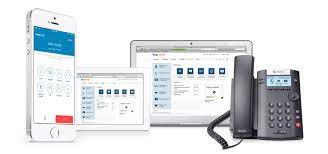There are several factors to consider when switching business phone service providers. These include cost, features, reliability, and flexibility.
Considering the benefits of switching to VoIP, businesses should evaluate all of their options. This will help them determine if they can improve upon their current setup or if it’s time to switch providers.
Cost
Business phone service providers help businesses manage calls within and between offices. They can offer services over the Internet, via a traditional landline, or on a mobile network based on the client’s preferences. They can also provide premium phone management features at extra costs.
When estimating the cost of switching business phone service providers, you must consider any fees you may be obligated to pay for breaking your contract with your existing provider. These are often called termination fees and can vary depending on the carrier. Some providers will cover these expenses to encourage customers to switch.
Another cost factor to consider is how long it will take for your phone numbers to port over to your new provider. Be sure to ask your prospective provider about the process and whether they can expedite it to ensure you get all calls during the transition.
Flexibility
Whether your current phone provider is unreliable, expensive, or lacks features your business needs, there are options. Choosing the right business phone service provider can save money and allow you to focus on your business goals.
If you’re switching providers but keeping your same phone number, a process called porting can help make the transition as seamless as possible. However, it’s essential to ask the new provider about their porting process and how they plan to avoid any disruption in service during the switchover.
Another option is to move away from traditional desk phones and opt for a virtual business phone system that uses VoIP technology. You can access the same call management and features using desktop computers, mobile cell phones, or even softphone applications on your computer. This allows you to stay productive from anywhere, including while working from home or on the go. It also offers flexibility, making it easier to scale as your business grows.
Features
When switching providers, you will also need to consider the features offered. For example, if you have features attached to your phone number that don’t follow it automatically when you port out, you will need to find out whether the new provider offers those same features. This can cause delays in getting your business phones up and running, as you will likely have to wait for those features to clear out of the old account before starting on the new one. One option to consider when assessing your needs is to switch from a landline provider to a VoIP service, saving you money on call charges while allowing you to keep desk phones at the office or move them to employees’ cell phones.
Reliability
When switching business phone service providers, you need to know the reliability of the new company. After all, you can’t afford to miss any calls during the transition. A reliable provider will have a process for switching over without losing any calls and will install the equipment at a time that doesn’t interrupt your business.
Reliability is defined in different ways by different people. The more general definition is the probability that a tangible asset will function in a specific environment for a period or cycle. This allows for the use of various measures to determine reliability.
The reliability of a company can be challenging to measure, but there are some things you should look for when choosing a new provider. First, you should ensure the company offers the features your business needs. It would help if you also considered the cost of the new provider.

